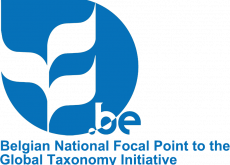GTI - Global Taxonomy Initiative
Home » GTI
Home » GTI
Supporting taxonomic research in the context of the Global Taxonomy Initiative (GTI)
Supporting taxonomic research in the context of the Global Taxonomy Initiative (GTI)
Taxonomy is the science of describing, naming and classifying the world’s organisms based on morphological, behavioral, genetic and biochemical observations, among others. Through this process taxonomists have gained far-reaching insights into the past and present components of biological diversity. Unfortunately, taxonomic knowledge is far from complete while biodiversity is declining at an unprecedented rate. Without a clear understanding of what exists, we cannot grasp what we stand to lose, much less safeguard entities that remain unnamed or unrecognized.
These gaps in our taxonomic systems and knowledge – together with the shortage of trained taxonomists and curators, the unequal access to taxonomic information and collections, and the unequal availability of taxonomic infrastructure – are referred to as the ‘taxonomic impediment’, which hinders the implementation of the CBD, especially in megadiverse developing countries.
Therefore, in order to resolve this taxonomic impediment and to enable Parties to better understand, manage and safeguard their own biodiversity, the Global Taxonomy Initiative (GTI) was established under the CBD in 1998. Since 2001, the Institute of Natural Sciences, through its CEBioS programme, houses the Belgian National Focal Point (NFP) to the GTI.
In this context, the activities of the Belgian GTI NFP at CEBioS are aimed at:
- Strengthening the taxonomic and curatorial capacities of partner countries of the Belgian Development Cooperation by providing training in taxonomy and collection management in Belgium or locally. But also by developing dedicated manuals in the Abc Taxa series, published by the Institute of Natural Sciences – CEBioS.
- Improving access of researchers from developing countries to scientific literature, databases and collections held in Belgium or elsewhere, to expand their knowledge on the components of their national biodiversity.
- Raising awareness among concerned stakeholders, including local populations and policy makers, on the importance of and the measures required for the monitoring and conservation of their national or local biodiversity.




